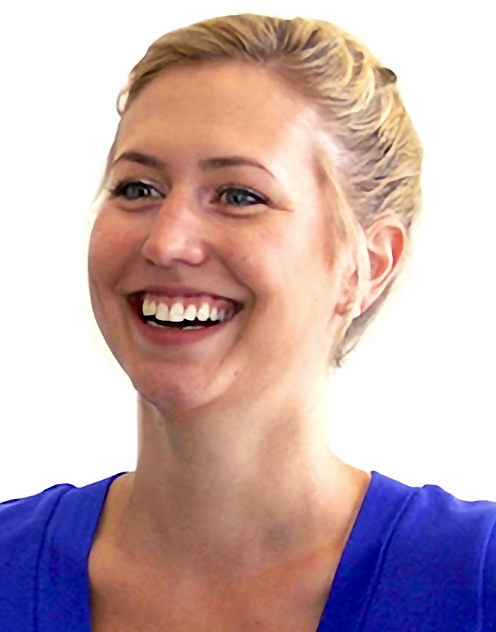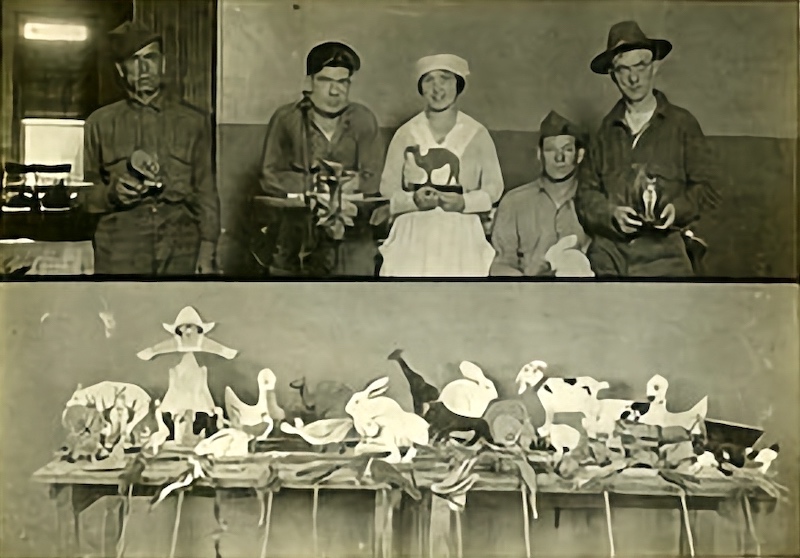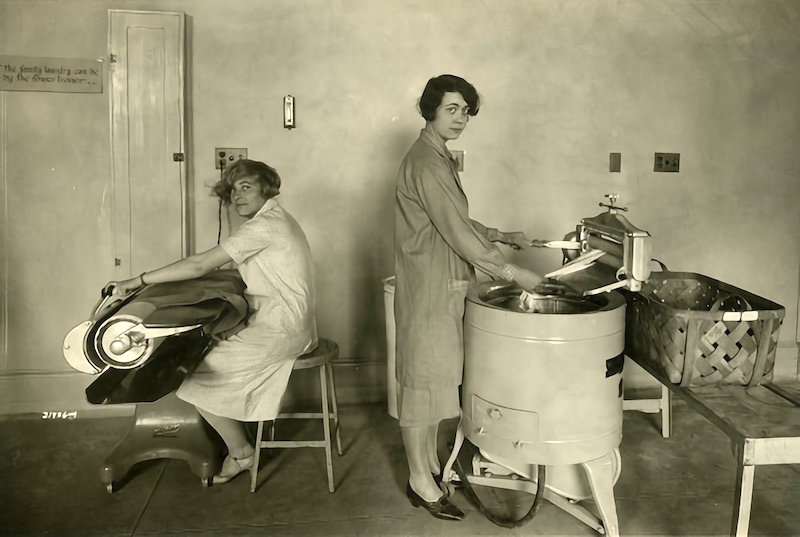Student Blog
Kendra

OTs go to war ⟩
October 3, 2012, by Kendra
I’ve been thinking about the roots of occupational therapy lately. In my last post I talked about the Mental Hygiene movement and how OTs helped people with mental illness. Another area of practice critical to our development as a field was helping wound warriors and returning vets get back to life after WWII.
In WWII huge advances were made in rehabilitative care, mainly due to the fact that the nation was not prepared to treat all of the wounded veterans and people had to quickly and creatively develop methods to help our soldiers find jobs and assimilate back into their role as husband, son, and brother. OTs were perfectly placed to use occupation to help veterans returning home.
Flash forward to today and one would think OTs would, yet again, be at the forefront of care for our warriors, but in an information session held for prospective OTs, we had a soldier wanting to become an OT who said than in her two tours of Iraq and Afghanistan she met only one occupational therapist. ONLY ONE!
But we are making baby steps. There is a program offered for wounded warriors in LA in which they deal with PTSD in a supportive community environment via ocean therapy. Guess who started it, a USC OT grad.
And we need more OTs getting in there not just when the soldiers return home but when they return from battle. Think of the amazing work OTs could do with soldiers IN Iraq and IN Afghanistan. We could lead groups for people to explore their war experience while performing a calming occupation like playing an instrument or painting a canvas. OTs could be a part of nation building projects and work with local people to build gardens, homes, and schools. One of my favorite things about occupational therapy is that we can work anywhere with every population, we just have to fill the gap with occupation!
⋯

My first day of fieldwork ⟩
October 1, 2012, by Kendra
I began my mental health fieldwork this week at AF Hawkins, the LA county psychiatric hospital. OTs got their start working with people with mental illness during the Progressive era in the early 20th century, but in an effort to define ourselves more medically, a lot of the arts and crafts aspect of our work was put aside for biomechanics and diagnostics. And here I was going back to our roots.

But while prepping for my first day I became very nervous reading about ‘arm’s length’ rules and ‘locked wards’ and ‘involuntary commitment.’ So despite my desire to be open minded and calm about working in a psychiatric hospital, my mind was filled with media images of bars and vacant eyes and inhumane conditions. What I saw was very very different.
Yes the doors are locked and yes you must take certain precautions to ensure yours and the patient’s safety. But what I didn’t predict was the sincerity and kindness with which the practitioners treat their patients. I didn’t imagine the laughter of adolescents echoing through the halls. So much of what I’d heard about psychiatric inpatient care was regarding role strain and the way therapists and nurses have to ‘turn off’ their emotions in order to deal with the weight of working with so many sick people. When I talked to the OTs at AFH many have worked there for over 15 years and every one I spoke to loved their job and the work they do. What is it about this place that makes the relationship between therapist and patient so effective?
Introducing the Cognitive Disabilities Model. It was created by Claudia Allen in an effort to properly pair a person’s cognitive functioning with appropriate activities. People’s cognition is rated on a 1.0–6.0 scale as are certain crafts. What this allows the OT to do is then offer activities (e.g., a greeting card or a tiled box) that properly match what the person can actually do therefore increasing the likelihood of success and satisfaction in performing that occupation. There are a lot more details that go into than that, but it works. I see OTs that know their role in the hospital and know how to help people on an individualized basis. That is the most important part, at least to me, because what they are doing is preventing the glossed over effect in which practitioners fall into the trap as viewing every person with one diagnosis as the same. They see everyone differently and suit their treatment to meet their specific needs, so OT!
⋯

Self-care ⟩
September 19, 2012, by Kendra
Life Hacks School/Life Balance
As with many beginnings of a semester you start out fresh and excited, by week four you’re tired and looking for the finish line. I think that’s just the natural progression of being a student. We forget in the excitement to learn new things and see friends how much work goes in to making the grade. I’m in the mental health immersion right now and while the content is fascinating and inspiring, it’s also draining. By the end of each Thursday I have found myself mentally and physically exhausted. Because of the nature of the content our professor encourages us to perform some ‘self-care occupations’ to help us cope. It can be anything from working out, to visiting with your loved ones, or reading a good book, whatever it is that works for you. Lately my totally un-satisfying self-care routine has been to veg-out in front of the TV until bedtime.
So after feeling run down for two weeks I’ve decided to make a change. I am re-introducing some favorite occupations back into my life!
Let’s backtrack. Another thing that happens when you go into student mode is some/all of the things you had time for before get pushed aside for studying, napping, and studying some more. Sometimes when I come out of the fog of reading journal articles I try to remember what I used to do on a weeknight. I used to go to the movies, read plays, and cook. I love to cook. But lately the most cooking I’ve done is to turn on the oven in order to defrost a Trader Joe’s dinner. Where’s the self-care in that?
This week, instead of sitting home alone watching endless hours of television just to not think for awhile, I’ve given myself the assignment to cook at least three dinners from scratch. I’m two down, and both have not only left me feeling full with leftovers to spare, but the weight of the day is lifted when I busy myself with chopping onions, simmering a tomato sauce, or trying out a new recipe. I am so much more satisfied engaging in fulfilling, meaningful occupations than I am when I sit and watch 5 episodes of House Hunters International.
It’s hard to remember when we are busy and stressed to take care of ourselves, but giving yourself something to look forward to helps the stress melt away at the end of a long day and makes you better prepared for what tomorrow brings.
⋯

Occupations linking us to our heritage ⟩
September 12, 2012, by Kendra
I got married this past August and something that occupied my mind throughout the planning and actual wedding process was the connection to my ancestors and current family I felt by taking part in this long-lived tradition. For the longest time I was a nay-sayer for weddings, I didn’t want to prescribe to antiquated traditions, I envisioned myself a new-age woman, hear me roar! I still am, but I see now why some traditions live for hundreds, thousands of years. Suffice to say, I get why people ‘get married.’ The feeling that I was experiencing the same jitters, excitement, and annoyances that my mother, grandmother, and one day, daughter will experience, made me feel like I was tapping into something far greater and substantial than just one day of celebration.
One of my classes this semester is Health Promotion and Wellness, and the activity we did this week was identifying occupations that are important to us and what values and emotions we instill into them. All I kept thinking about was the connection to the past I feel when engaging in some occupations. Finding this connection allows for greater value and understanding of the process of engaging in occupation. For example, laundry. I avoid doing it until absolutely necessary, but lately when I am folding shirt after shirt after shirt I think of my great-grandmother, whom I never met, but know that she too throughout her lifespan folded clothes, cooked meals, and got married. Suddenly this seemingly mundane task was far more meaningful. Suffice to say, my class has helped me re-think the ‘why’ of engaging in certain activities, allow the why to create meaning and, ideally, change something burdensome into something meaningful.

⋯





